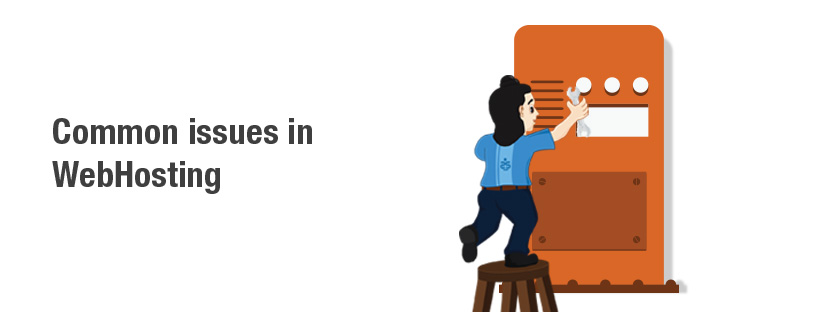Published on: August 19, 2010 by Geo Paul

Scenario:
We are here discussing 3 common cPanel server issues and the steps on how to resolve those issues.
When tried to change passwd from WHM, the following error is displayed.
Error
The password for “user” could not be changed because:
Check the error in log file: /usr/local/cpanel/logs/error_log
You will find similar error as shown below.
=============================================================
Can’t locate Crypt/PasswdMD5/XS.pm in @INC (@INC contains:
/scripts /usr/lib64/perl5/site_perl/5.8.8/x86_64-linux-thread-multi
/usr/lib/perl5/site_perl/5.8.8 /usr/lib/perl5/site_perl
/usr/lib64/perl5/vendor_perl/5.8.8/x86_64-linux-thread-multi
/usr/lib/perl5/vendor_perl/5.8.8 /usr/lib/perl5/vendor_perl
/usr/lib64/perl5/5.8.8/x86_64-linux-thread-multi
/usr/lib/perl5/5.8.8 .) at /scripts/cPScript/CheckPass/UNIX.pm line 6.
BEGIN failed–compilation aborted at /scripts/cPScript/CheckPass/UNIX.pm line 6.
Compilation failed in require at /scripts/cPScript/CheckPass.pm line 6.
BEGIN failed–compilation aborted at /scripts/cPScript/CheckPass.pm line 6.
Compilation failed in require at /scripts/realchpass line 16.
BEGIN failed–compilation aborted at /scripts/realchpass line 16.
=============================================================
Fix:
ssh into the server with root login credentials.
# /scripts/perlinstaller Crypt::PasswdMD5
Check if the issue still persists.
Then, let’s try fixing the problem without rebuilding Perl or changing any system configuration files. Run:
# /scripts/checkperlmodules
# service cpanel restart
Try changing the password again. If you’re still getting the error, it’s likely that the cPanel Perl installation was overwritten by an updated Perl RPM either manually or by yum. Let’s make sure Perl is left up to cPanel and check if perl automatic perl update is disabled in cPanel and excluded from yum list.
# grep allowperlupdates /var/cpanel/cpanel.config
If you see allowperlupdates=1 you’ve enabled “Allow Perl updates from RPM-based linux vendors” in WHM under Tweak Settings -> System. Return to WHM and uncheck this option then click the “Save” button.
In /etc/yum.conf, check if perl is present in exclude and intall the pearl module.
exclude=apache* bind-chroot courier* dovecot* exim* httpd* mod_ssl* mysql* nsd* perl* php*
Steps to install the pearl module.
First check the current version of Perl
# perl -v
If the older version of Perl is running on server, you get an output something like,
This is perl, v5.8.7 built for i686-linux
Upgrade perl on the Cpanel server
1) Download the latest perl installer from cPanel site.
# wget http://layer1.cpanel.net/perl588installer.tar.gz
2) Untar the file.
# tar -zxvf perl588installer.tar.gz
3) Change the directory to perl588installer.
# cd perl588installer
4) Now run the installer file.
# ./install
5) Check perl modules.
# /scripts/checkperlmodules
6) Force a cPanel update.
# /scripts/upcp –force
****************************************************************************************************************
How to locate mysql log file in the server.
* Check whether the mysql log file is present in /var/log such as /var/log/mysqld.log
* Usually, the mysql log file is present in /var/lib/mysql for cPanel servers. Kindly follow the steps to find the log file
======================================================================================================
root@server1 [/var/lib/mysql]# top -c | grep mysql
17545 mysql 15 0 427m 209m 5176 S 3.9 2.6 266:16.79 /usr/sbin/mysqld –basedir=/ –datadir=/var/lib/mysql –user=mysql –pid-file=/var/lib/mysql/server1.abc.com
======================================================================================================
Find the hostname of the server.
=======================
root@server1 [~]# hostname
server1.abc.com
=======================
We need to find the presently running mysql log file in the server. Usually, mysql log file will be associated with the hostname.
=======================================================
root@server1 [/var/lib/mysql]# ls -l | grep -i server1.abc.com
-rw-rw—- 1 mysql mysql 48495912 Aug 19 16:46 server1.abc.com.err
-rw-rw—- 1 mysql mysql 41720 May 18 2009 SERVER1.ABC.COM.err
-rw-rw—- 1 mysql mysql 6 Aug 19 16:46 server1.abc.com.pid
-rw-rw—- 1 mysql mysql 6 May 18 2009 SERVER1.ABC.COM.pid
=======================================================
From the above code, we find that server1.abc.com.err is used recently (checking with date). Therefore, server1.abc.com.err is the log file. To confirm it further, kindly check the process ID of server1.abc.com.pid with that of mysql process ID.
==========================================
root@server1 [/var/lib/mysql]# cat server1.abc.com.pid
17545
==========================================
The mysql log file displayed below.
==============================================================================
root@server1 [/var/lib/mysql]# vi server1.abc.com.err
090503 04:31:43 mysqld started
InnoDB: The first specified data file ./ibdata1 did not exist:
InnoDB: a new database to be created!
090503 4:31:43 InnoDB: Setting file ./ibdata1 size to 10 MB
InnoDB: Database physically writes the file full: wait…
090503 4:31:43 InnoDB: Log file ./ib_logfile0 did not exist: new to be created
InnoDB: Setting log file ./ib_logfile0 size to 5 MB
InnoDB: Database physically writes the file full: wait…
090503 4:31:43 InnoDB: Log file ./ib_logfile1 did not exist: new to be created
InnoDB: Setting log file ./ib_logfile1 size to 5 MB
InnoDB: Database physically writes the file full: wait…
InnoDB: Doublewrite buffer not found: creating new
InnoDB: Doublewrite buffer created
InnoDB: Creating foreign key constraint system tables
InnoDB: Foreign key constraint system tables created
090503 4:31:43 InnoDB: Started; log sequence number 0 0
090503 4:31:43 [Note] /usr/sbin/mysqld: ready for connections.
Version: ‘5.0.67-community’ socket: ‘/var/lib/mysql/mysql.sock’ port: 3306 MySQL Community Edition (GPL)
090503 4:31:46 [Note] /usr/sbin/mysqld: Normal shutdown
090503 4:31:46 InnoDB: Starting shutdown…
090503 4:31:47 InnoDB: Shutdown completed; log sequence number 0 43655
090503 4:31:47 [Note] /usr/sbin/mysqld: Shutdown complete
090503 04:31:47 mysqld ended
==============================================================================
***********************************************************************************
The “latest visitor” log in the stats of the cpanel is weird and not getting updated.
Error: Raw Access log contain only term “combined”, liked combined combined combined……………………
Fix:
Check if the format provided below is correct in the apache configuration file where version is Apache/2.2.15.
=======================================================================
<IfModule log_config_module>
LogFormat “%h %l %u %t \”%r\” %>s %b \”%{Referer}i\” \”%{User-Agent}i\”” combined
LogFormat “%h %l %u %t \”%r\” %>s %b” common
CustomLog logs/access_log common
<IfModule logio_module>
LogFormat “%h %l %u %t \”%r\” %>s %b \”%{Referer}i\” \”%{User-Agent}i\” %I %O” combinedio
</IfModule>
</IfModule>
=====================================================================
Category : Apache, cPanel, Linux, MySQL

Add new commentSIGN IN